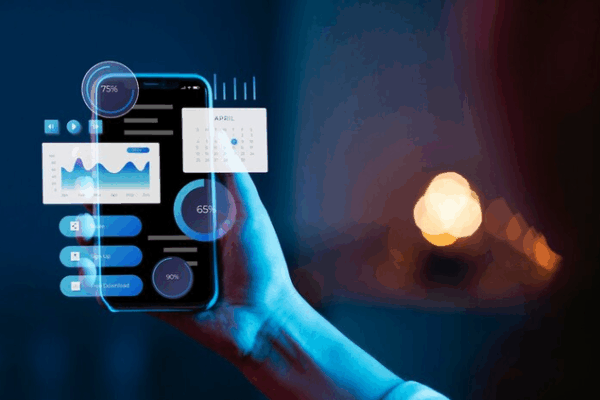ADHD Paralysis in Students: How to Help Your Teen Take Action
Meta Description: ADHD paralysis in students can severely affect school performance. Learn how to help your teen overcome ADHD paralysis, and discover ADHD paralysis treatment through specialist consultation.
Introduction: ADHD Paralysis in Teens
ADHD paralysis can be a significant challenge for students, particularly teenagers. When your teen struggles with ADHD, they may often feel overwhelmed by schoolwork, unable to focus, and paralyzed by the thought of tackling assignments. This “mental freeze” can make it seem like they’re procrastinating or not trying hard enough, but in reality, ADHD paralysis is a neurological issue that hampers their ability to take action.
In this article, we’ll explore how ADHD paralysis affects teens, how parents can support their children, and how ADHD paralysis treatment from specialists can help your teen break free from paralysis and regain control over their academic life.
What Is ADHD Paralysis in Teens?
ADHD paralysis in students occurs when the cognitive demands of school or homework become overwhelming, leading to a mental shutdown. Instead of being able to prioritize or begin assignments, teens may find themselves stuck in a cycle of indecision and inaction.
Some common signs of ADHD paralysis in teens include:
Procrastination: Putting off assignments or tasks, even when deadlines are looming.
Decision Fatigue: Difficulty making decisions about where to start or what task to do first, often leading to inaction.
Overwhelm: Feeling mentally frozen when confronted with multiple assignments or responsibilities.
Low Productivity: Working on a task without making much progress, or abandoning it halfway through.
These behaviors can result in poor academic performance and can severely affect your teen’s self-esteem. It’s important to recognize that this is not due to laziness or lack of motivation, but rather the neurological challenges caused by ADHD.
How ADHD Paralysis Affects Teenagers
ADHD paralysis can have a significant impact on a teenager’s academic and personal life. Here’s how it might manifest:
Falling Behind in School: Teens may struggle to start or complete homework, leading to missed assignments and lower grades.
Increased Stress and Anxiety: As tasks pile up, the pressure to catch up can cause significant stress and anxiety, making it even harder to take action.
Low Self-Esteem: Constantly feeling like they’re not meeting expectations can lead to feelings of shame or frustration.
Family Strain: Parents may become frustrated by the lack of progress, and the teen may feel misunderstood or unsupported.
Recognizing ADHD paralysis in teens is the first step in providing the right support and interventions to help them succeed.
How to Help Your Teen Overcome ADHD Paralysis
As a parent, you can play a crucial role in helping your teen overcome ADHD paralysis. Here are some strategies that may help:
1. Break Tasks into Smaller, Achievable Steps
Large assignments can be overwhelming for teens with ADHD. Breaking tasks into smaller, manageable steps can help them feel less overwhelmed. For example, if they need to write a research paper, break it down into stages like brainstorming, research, outlining, drafting, and revising. This approach makes the task seem more manageable and less intimidating.
2. Set Clear and Achievable Goals
Work with your teen to set clear, achievable goals for their schoolwork. For example, rather than saying, “Complete all of your homework,” encourage them to set a goal like, “Finish the math worksheet by 4 p.m.” Clear, specific goals create direction and give your teen a sense of accomplishment as they achieve them.
3. Create a Routine
Having a consistent routine helps teens with ADHD reduce the uncertainty that often leads to paralysis. Set specific times for studying, breaks, and relaxation. A predictable schedule can help reduce mental overload and make it easier for your teen to stay on track.
4. Use Visual Tools and Reminders
Visual aids, such as a calendar, task list, or reminder apps, can help your teen stay organized and on top of deadlines. These tools act as external cues that provide structure and remind them of upcoming tasks.
5. Limit Distractions
Create a quiet, distraction-free study space for your teen. Limit access to distractions like phones or TV during study time, and ensure that they can focus on the task at hand without interruptions.
6. Encourage Regular Breaks
Teens with ADHD often struggle to maintain focus for long periods. Encourage your teen to take regular breaks using techniques like the Pomodoro Technique, where they work for 25 minutes, followed by a 5-minute break. These short intervals can help maintain focus without overwhelming them.
ADHD Paralysis Treatment: Seeking Specialist Consultation
If ADHD paralysis is significantly affecting your teen’s academic performance, it may be time to seek professional help. ADHD paralysis treatment from specialists can provide your teen with personalized strategies and guidance to address the root causes of their ADHD paralysis. Here’s how specialist consultation can help:
Comprehensive Assessment: A specialist can conduct an in-depth evaluation of your teen’s ADHD symptoms and determine the extent to which ADHD paralysis is affecting their ability to function. This can help provide clarity and a clearer treatment plan.
Therapy and Counseling: Cognitive Behavioral Therapy (CBT) and other therapeutic interventions can help your teen address negative thought patterns and improve their problem-solving abilities. Therapy can also teach them skills for managing anxiety and stress, which often accompany ADHD paralysis.
ADHD Coaching: ADHD coaches specialize in helping individuals develop time management skills, prioritize tasks, and create personalized strategies for overcoming paralysis. Coaching can provide your teen with the tools they need to manage ADHD symptoms effectively.
Medication: In some cases, medications prescribed by a doctor may help alleviate some of the symptoms of ADHD, such as distractibility and impulsivity. This can make it easier for your teen to stay focused and take action on their tasks.
Family Support: Specialists can offer guidance on how parents can support their teen in overcoming ADHD paralysis, including communication strategies, motivation techniques, and helping the teen develop a growth mindset.
By consulting with a specialist, you can help your teen build a stronger foundation for managing ADHD paralysis and excelling in school.
Conclusion: Empowering Your Teen to Take Action
ADHD paralysis can feel overwhelming for both teens and their families. However, with the right strategies and support, it’s possible to help your teen take action and regain control of their academic life. By breaking tasks into smaller steps, setting clear goals, and creating a supportive environment, you can help reduce the impact of ADHD paralysis.
Remember, seeking ADHD paralysis treatment from a specialist can provide your teen with the expert guidance and tools they need to manage their ADHD symptoms long-term and break free from paralysis.
Call to Action: Seek Professional Support for Your Teen Today
If your teen is struggling with ADHD paralysis, take the first step toward support and improvement. Explore ADHD paralysis treatment to provide your teen with the guidance they need to succeed academically and beyond.





Leave a Reply
You must be logged in to post a comment.